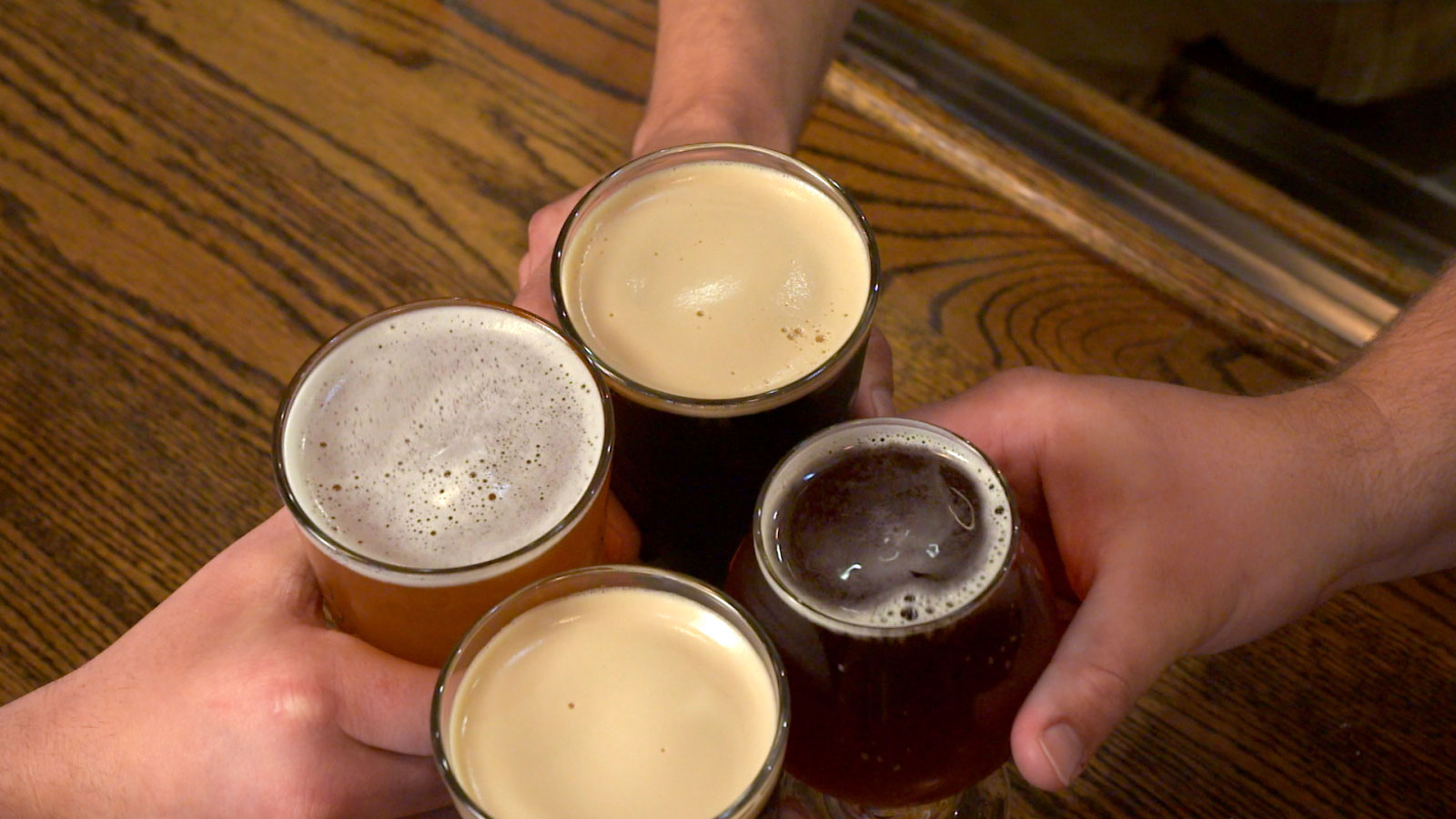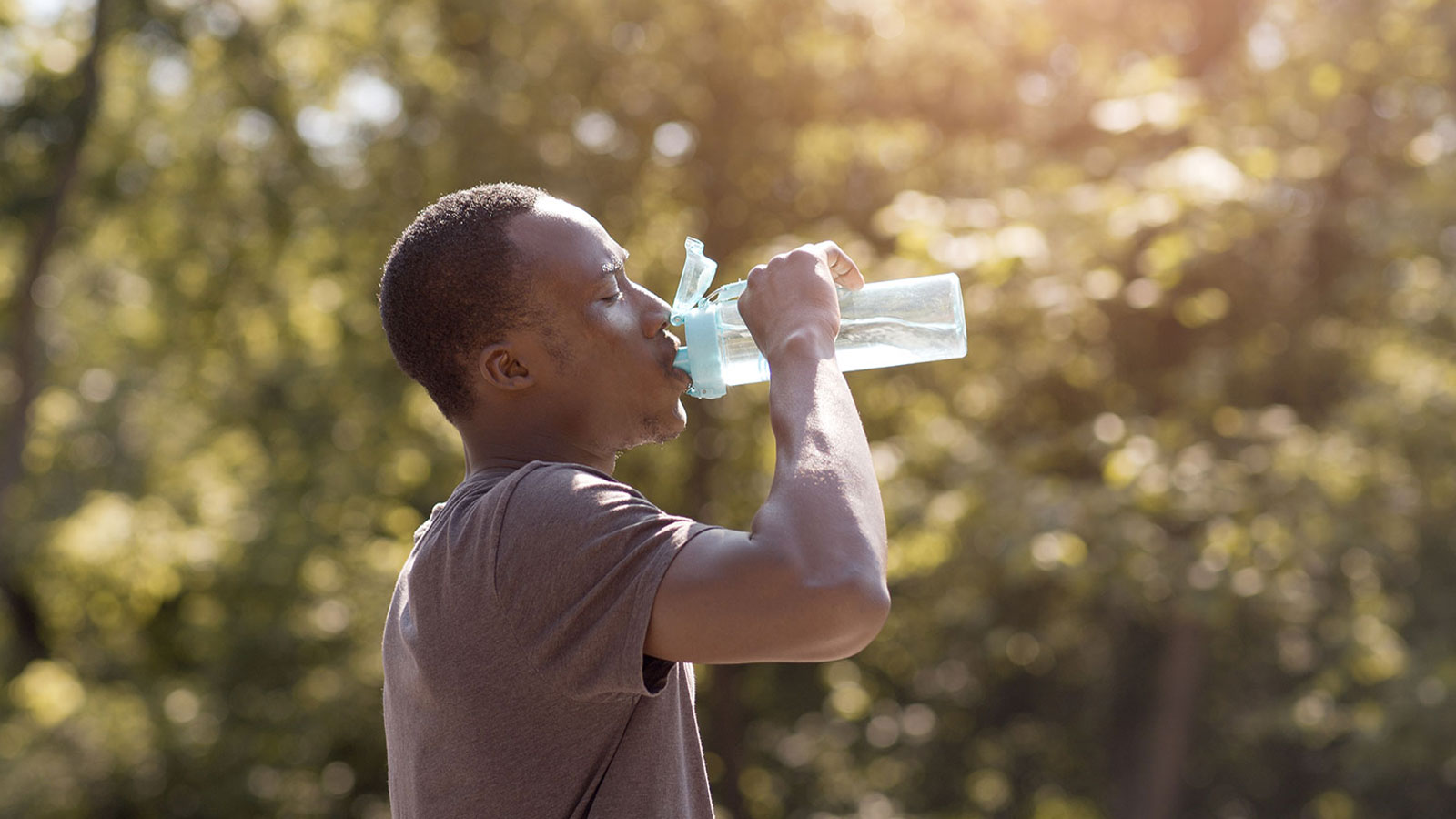Water is Essential to Life — and Your Health. So Know How to Stay Hydrated
You already know you can’t survive without it. But how much water should you actually drink every day? You may have heard the “eight glasses a day” rule. And while this might be right for some, the truth is there’s no one-size-fits-all answer. Staying hydrated starts with knowing your body’s specific needs.
The benefits of drinking water
Everybody (and every body) needs water to work properly. Some of the ways it keeps you healthy:
- Eliminating waste through urine, bowel movements and sweat
- Keeping joints healthy and lubricated
- Regulating body temperature
- Aiding with bladder and kidney function
- Improving digestion
- Protecting sensitive tissues
- Keeping skin from drying out
How much water should the average person drink?
Some people set a goal to drink a gallon every day. Drinking plenty of water has its advantages. Among them:
- Reduced hunger cravings
- Increased energy levels
- Smoother, healthier skin
- Balanced body fluids for circulation and digestion
- Improved brain power
- Enhanced agility and the way your body moves
But while there are benefits of drinking a gallon of water each day, it’s not a requirement. The truth is, no single formula fits anyone. The key: learning what your body needs. On average, a healthy adult should take in the following amounts per day:
- 3.7 liters (15.5 cups or 125 ounces) for men
- 2.7 liters (11.5 cups or 91 ounces) for women
About 20% of your daily fluid intake will usually come from food, and the rest you get from drinks. But instead of counting how many ounces you’re drinking, listen to your body. Drink when you’re thirsty and try to consume water slowly throughout the day.
How to tell if you’re dehydrated
When dehydrated, your body lacks the fluids to carry out normal functions. You likely need more water if you notice the following signs of dehydration:
- Lightheadedness or dizzy feeling
- Dry mouth and tongue and cracked lips
- Less frequent need to urinate
- Muscle cramps
- Thirsty feeling
- Frequent headaches
- Fatigue or drowsiness
- Urine has a darker color
- Eyes more sunken than usual
You can also try the skin test. Pinch one of your knuckles and let go. If you’re dehydrated, the skin will stay raised for a few seconds. If it quickly returns to normal, you’re probably okay.
“While the skin test is useful, it may not be ideal for older people,” says Alex Germano, MD, a Geisinger family medicine physician. “They often have less elastic skin that doesn’t bounce back as easily, but that doesn’t mean they’re dehydrated.”
If you notice any of these signs, the first thing you should do is drink more water. Start with small sips if it’s hard to drink.
“If you feel sick and dehydrated, talk to your doctor or pharmacist,” says Dr. Germano. “They can recommend hydration mixes that will restore minerals your body has lost.”
How to stay hydrated
Even when you know water is crucial, new habits don’t come easy. Try these easy ways to stay hydrated during the day:
- Drinking a glass when you wake up
- Eating fruits and vegetables throughout the day with high water content (watermelon, strawberries, cantaloupe, celery and tomatoes)
- Carrying a refillable water bottle and drinking from it throughout the day
- Drinking a glass with every meal
- Flavoring water with lemon or a flavor packet
- Using a tracking app or setting reminders on your phone
“All beverages you drink, including coffee, tea, milk and soda, have a high water content and count toward your intake,” says Dr. Germano. “But go easy on soda and other sweet drinks because they’re filled with sugar and can lead to obesity, diabetes and heart disease. And be careful with the amount of caffeinated beverages you drink, as caffeine causes you to urinate more and use water faster.”
You should also modify fluid intake according to the following:
Weather: When it’s hot, be sure to hydrate. Warmer weather can make you sweat, which means you lose fluids faster. Higher altitudes can cause dehydration, too.
When you exercise: Similarly, you lose fluids when you’re sweating from being active. Drink lots of water before, during and after you exercise.
Health concerns: Fever, vomiting and diarrhea can cause dehydration. Drink plenty of fluids or follow your doctor’s recommendations for rehydration.
Pregnancy: If you’re pregnant or breastfeeding, drink extra water. Your body is producing fluids for you and your baby.
Drink to your health
Most likely, your normal eating and drinking patterns already keep you hydrated throughout the day. As you estimate how much to drink daily, consider your lifestyle, the weather and your health needs. Let your thirst guide you. Water benefits almost every part of your body, so drink up!



























